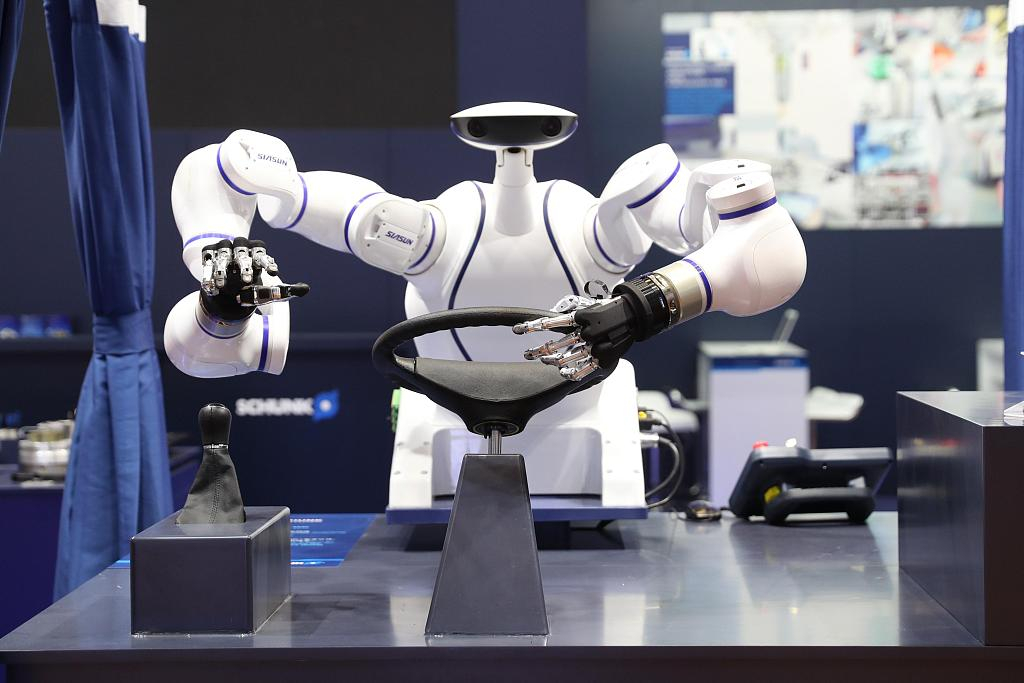
Editor's Note: Liu Jianxi is an opinion editor with CGTN Digital. The article reflects the author's opinions, and not necessarily the views of CGTN.
Chinese President Xi Jinping re-emphasized the importance of opening-up in his keynote speech at the opening ceremony of the second China International Import Expo (CIIE) in Shanghai. "Standing at a new historical starting point, China will open its door only wider to the world," Xi pledged at the national-level trade fair that attracted more than 3,000 enterprises from over 150 countries and regions.
"Opening-up" is one of the most frequently used words in Xi's speech. To deepen the current reform and further open the Chinese economy to the outside world, Xi vowed to continue to expand market opening-up and optimize the framework to do so, improve the business environment, deepen multilateral and bilateral cooperation and keep advancing the Belt and Road Initiative.
This is in line with the messages of the just-concluded fourth plenary session of the 19th Central Committee of the Communist Party of China (CPC) that placed particular emphasis on the modernization of China's system and capacity for governance. To further boost the country's economic growth, the session reiterated the decisive role of the market in resource allocations and the importance of institutional reforms in broadening the scope of foreign investment.
For years, Western countries, driven by their ideological prejudices, have been interpreting the CPC from a negative perspective and equating a socialist system with unfair protectionism on state-owned enterprises. But the reality is the opposite – China is on the path to a higher level of opening-up and a broader scope of fairness.
In its newly released report, "Doing Business 2020: Comparing Business Regulation in 190 Economies," the World Bank ranked China the 31st in the global ease of doing business, up from 46th last year. "To date, China has shown a notable improvement in the areas of dealing with construction permits, getting electricity and resolving insolvency," the report concludes.

A robot on display at this year's China International Import Expo in Shanghai, China, November 5, 2019. /VCG Photo
A robot on display at this year's China International Import Expo in Shanghai, China, November 5, 2019. /VCG Photo
What's behind the strides? To begin with, apart from Chinese leaders' repeated emphases on opening-up on different international occasions, the Chinese government is proving its determination and sincerity with concrete actions.
Against Western complaints about uneven playing fields for foreign enterprises, China is fleshing out its new foreign investment law that is due to take effect in 2020. Introduced in March, the law bans administrative means to force technology transfer and abolishes the "case-by-case approvals" process for foreign investments. China is seriously addressing the current conundrums that foreign investors are facing in the country via legal means.
Moreover, the irreversible trend of global integration and the intrinsic law of the economy determine China's irreplaceable place in global trade. China's population of 1.4 billion people means that China's domestic consumer base far exceeds that of the majority of countries in the world, and their increasing purchasing power represents tremendous opportunities in investing in China.
Figures explain. Statistics from China's CIIE Bureau suggest that the volume transactions reached 57.8 billion U.S. dollars in the five-day trade fair last year. It is worth noting that despite Washington's hawkish rhetoric, a total of 192 American firms have confirmed their participation in this year's CIIE, occupying the largest exhibition area – 47,500 square meters – among all participants.
Just as Xi said in his speech, "the Chinese market is such a big one that you should all come and see what it has to offer," international enterprises, in spite of political divergences, continue to seek vast opportunities in China. After all, the economic basis determines the superstructure.
The growing demand for investing in China, in turn, is forcing institutional reforms within the country. China has been and will continue to strengthen the role of consumption in boosting economic growth and put more efforts into reviving the domestic market.
In the era of global integration, cooperation is the major theme. It is high time that international players, especially those from the West, should abandon stereotypes and recognize China's sincere efforts in opening up its economy and building a community with a shared future for mankind with objectivity and fairness.
(If you want to contribute and have specific expertise, please contact us at opinions@cgtn.com.)